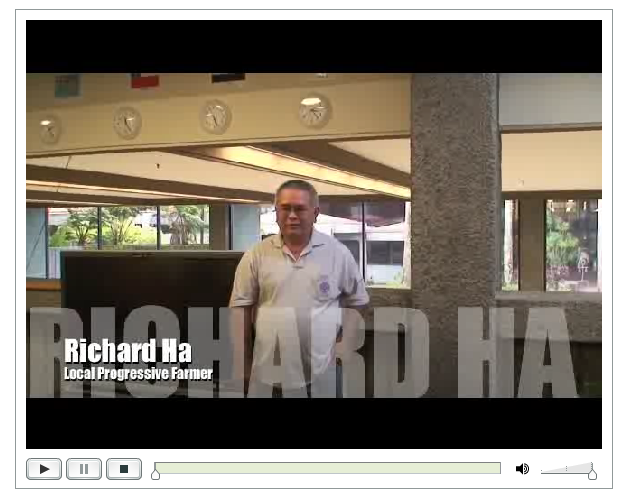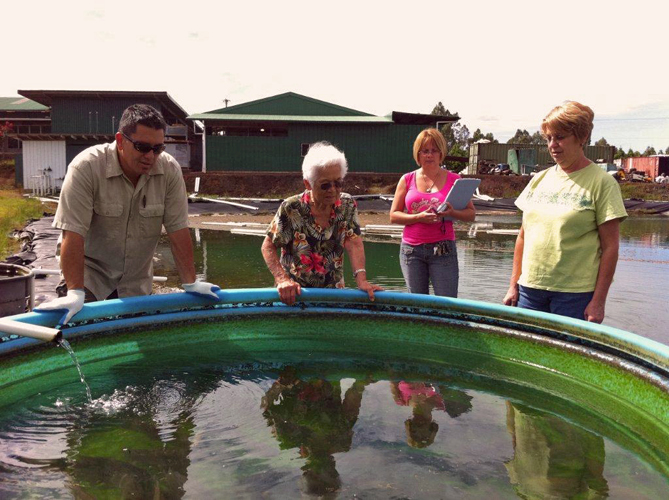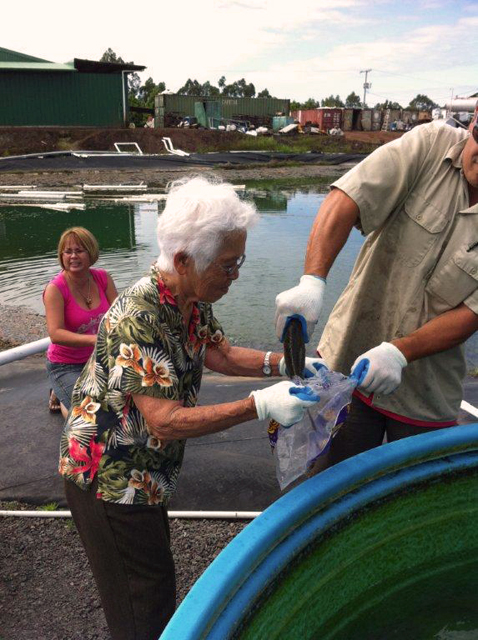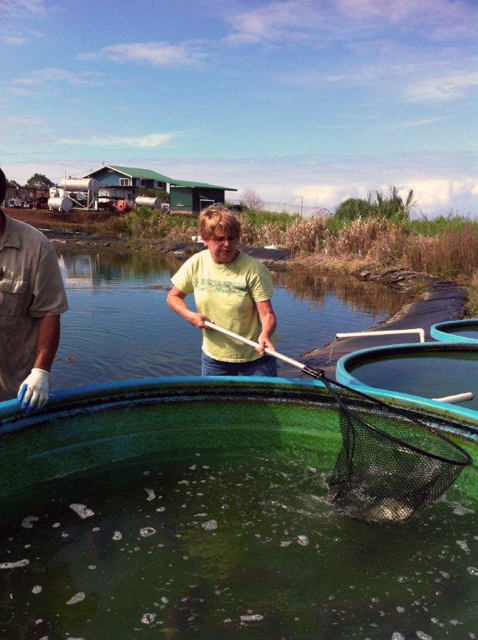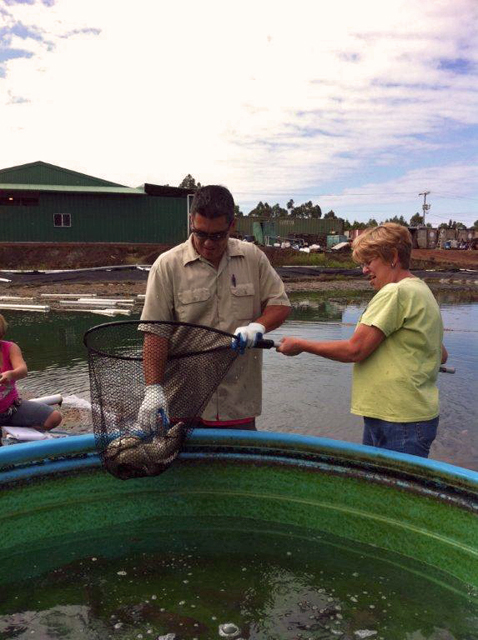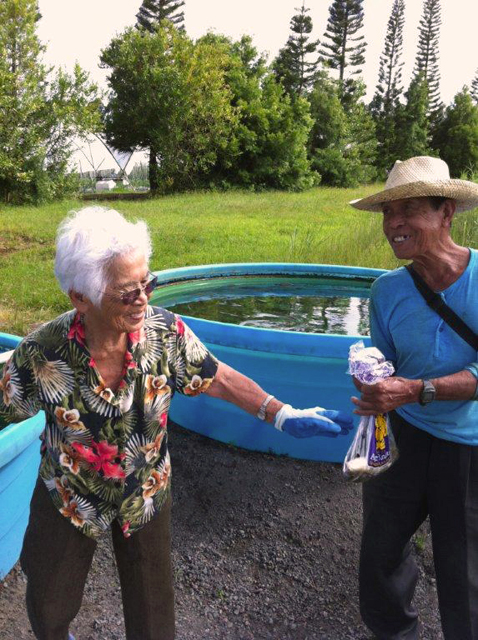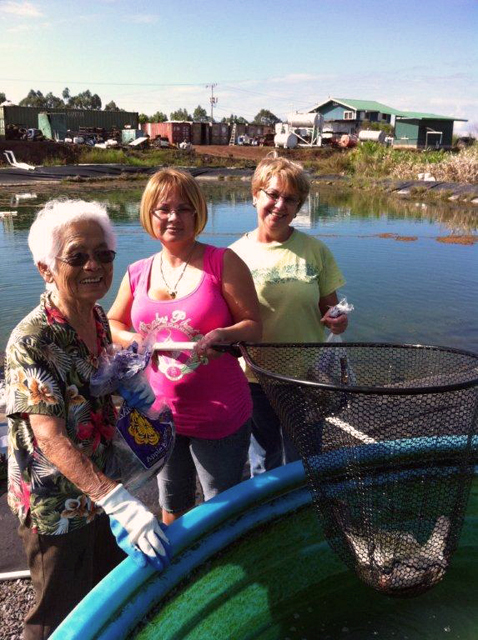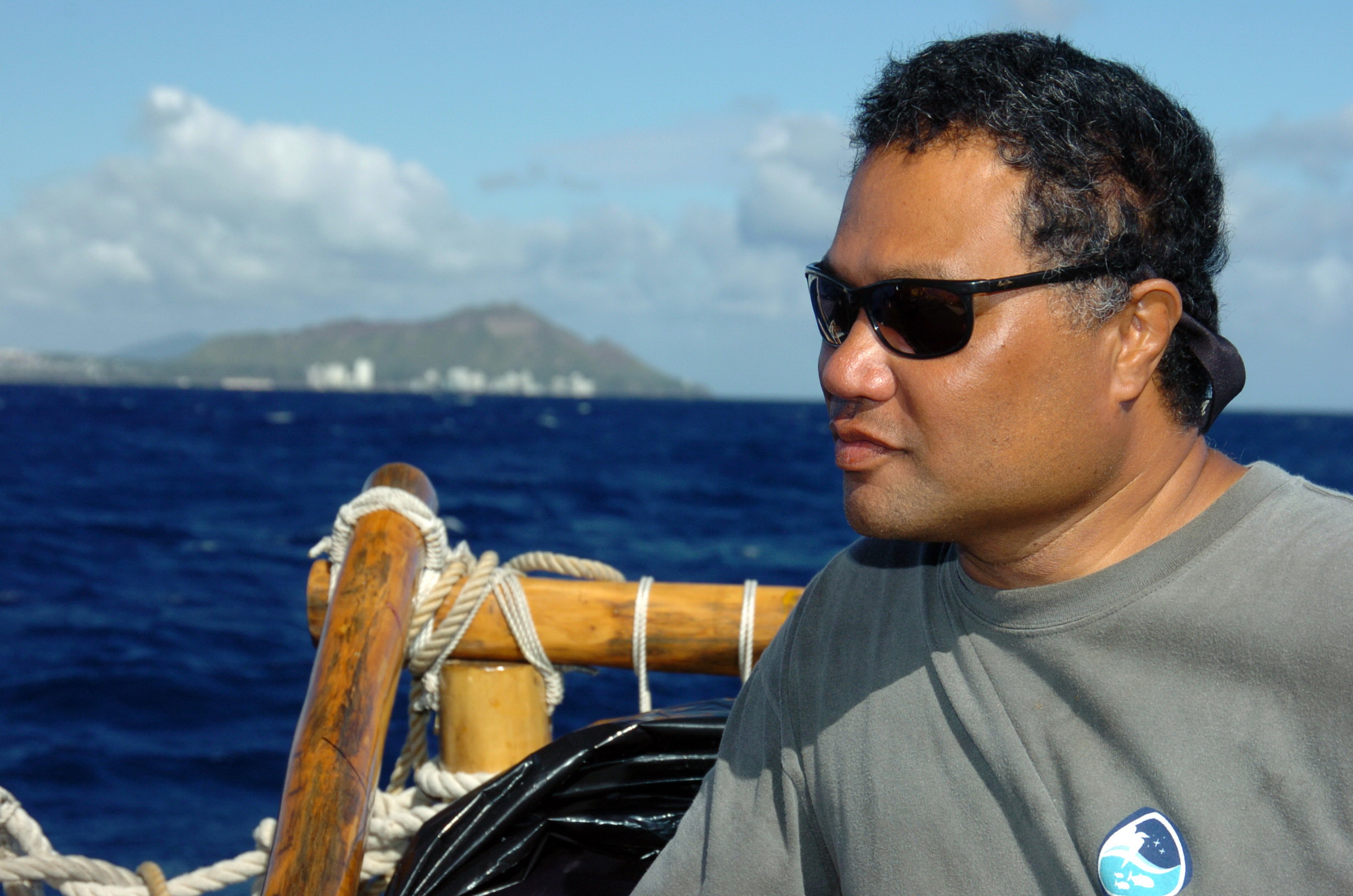 Kalepa Baybayan is known as a “Master Navigator,” but when I talked to him the other day, it was clear the title makes him uncomfortable. He returned to it twice.
Kalepa Baybayan is known as a “Master Navigator,” but when I talked to him the other day, it was clear the title makes him uncomfortable. He returned to it twice.
“I would disclaim being a master of anything,” he said. “I’m pretty much a student of the art. Though I have greater responsibilities, I still learn every time I go out.”
He was talking about going out on the Hokule‘a, which he’s sailed on since 1975, when he was 19. If there is anything more interesting than the story of the Hokule‘a, I don’t know what it is.
From Wikipedia:
Hōkūleʻa is a performance-accurate full-scale replica of a waʻa kaulua, a Polynesian double-hulled voyaging canoe. Launched on 8 March 1975 by the Polynesian Voyaging Society, she is best known for her 1976 Hawaiʻi to Tahiti voyage performed with Polynesian navigation techniques, without modern navigational instruments. The primary goal of the voyage was to further support the anthropological theory of the Asiatic origin of native Oceanic people, of Polynesians and Hawaiians in particular, as the result of purposeful trips through the Pacific, as opposed to passive drifting on currents, or sailing from the Americas. (Scientific results of 2008, from DNA analysis, illuminate this theory of Polynesian settlement.) A secondary goal of the project was to have the canoe and voyage “serve as vehicles for the cultural revitalization of Hawaiians and other Polynesians.”
Since the 1976 voyage to Tahiti and back, Hōkūle‘a has completed nine more voyages to destinations in Micronesia, Polynesia, Japan, Canada, and the United States, all using ancient wayfinding techniques of celestial navigation.
The next Hokule‘a voyage, now in the planning stages, is going to be a doozy: They’re planning to take the voyaging canoe around the world. The Hokule‘a is going to circumnavigate the globe, and it will probably be a two- to three-year voyage, he said.
“As ambitious as that sounds, explorers have been sailing around the world for a couple hundred years now,” he said, “so it’s not something so far out there it’s not achievable.”
“In my very early years, looking at that traditionally shaped sail cutting across the night sky,” he said, “that’s a pretty compelling vision for a young man to see. I look up there and realize that silhouette I’m seeing is probably the same one my ancestors saw.
“The excitement, amazement, the loneliness and happiness of finding land – it’s timeless. That’s universal. So you get really close to experiencing the world and the environment in the same sense your ancestors did.”
Richard wanted to know if Kalepa navigates the canoe by the ocean, looking up at the stars, or whether he sees himself as traveling in space – in the stars?
Kalepa thought about that before answering. He said he just sees the canoe pointing in a certain direction, and things moving by it. “I don’t really experience it as the canoe being moved by nature,” he said. “Rather I see nature moving by us.”
When not at sea, Kalepa is Navigator-in-Residence at ‘Imiloa Astronomy Center in Hilo. Isn’t that a great title? “They had an Astronomer-In-Residence and they wanted a Navigator-In-Residence too,” he explained.
‘Imiloa, of course, is where we “celebrate Hawaiian culture and Maunakea astronomy, sharing with the world an inspiring example of science and culture united [my italics] to advance knowledge, understanding and opportunity.”
Kalepa and the interim executive director, Ka‘iu Kimura, are both graduates of the Hawaiian language college, and Kalepa said there’s an indigenous model of leadership emerging at ‘Imiloa.
“One of the great things about ‘Imiloa is that it’s exposing us to the national and international communities,” he said.
About a year and a half ago, he and ‘Imiloa Planetarium Director Shawn Laatsch were invited to speak at Athens and Hamburg planetariums. “There is a curiosity about indigenous astronomy,” he said, “and the story of voyaging is a really compelling story. And the context is to have Shawn speak to the [astronomical] exploration being done on Mauna Kea.”
He said while he’s really happy with where Hawai‘i’s voyaging knowledge is at, there’s still a lot of work to do. “We experimented with what we were doing,” he said. ‘We learned and we gathered the info. Now it’s a matter of, How do we teach it in an effective way? Who are the teachers?
“It’s one thing to have a conversation with canoe people who travel together all the time, but trying to talk to a new generation, that’s a different kind of process.”
This seems to be another place ‘Imiloa comes in.
“We need to make a connection to the STEM program,” he said, “to science; that encourages young learners to follow the tradition of navigation; not to be navigators, but to follow the tradition of exploring.”
“My largest responsibility,” he said, about his role at ‘Imiloa, “is that the internal compass of the organization be aligned to the horizon we want to move toward.”


